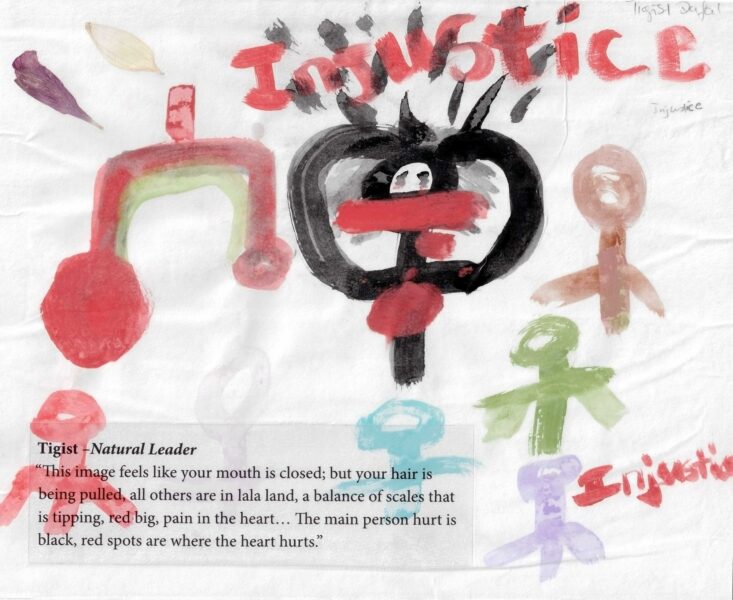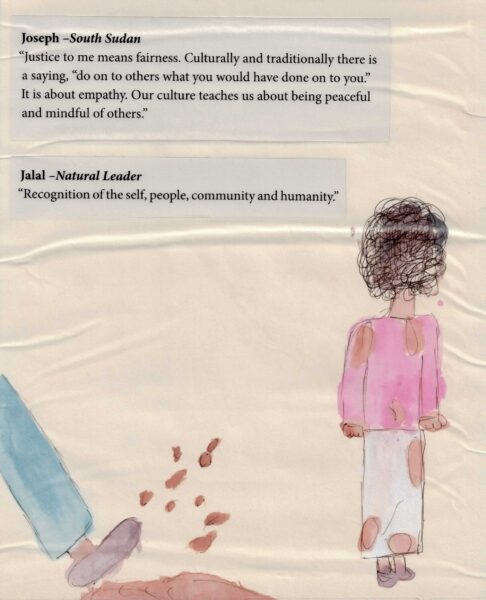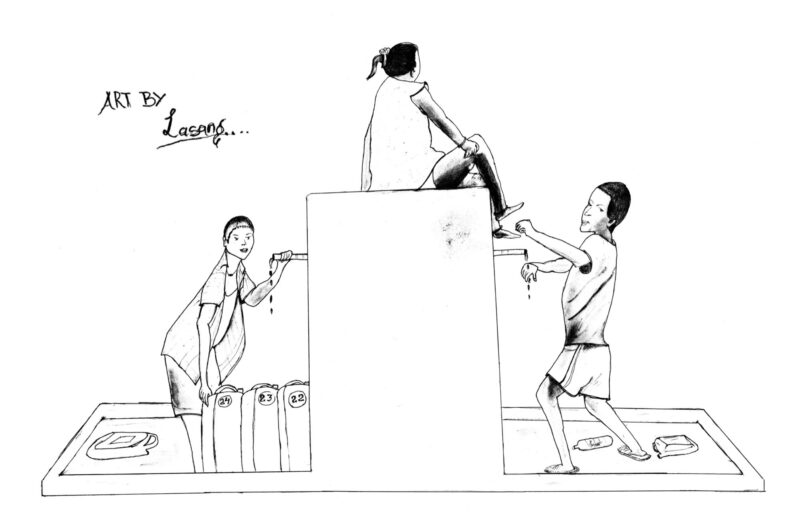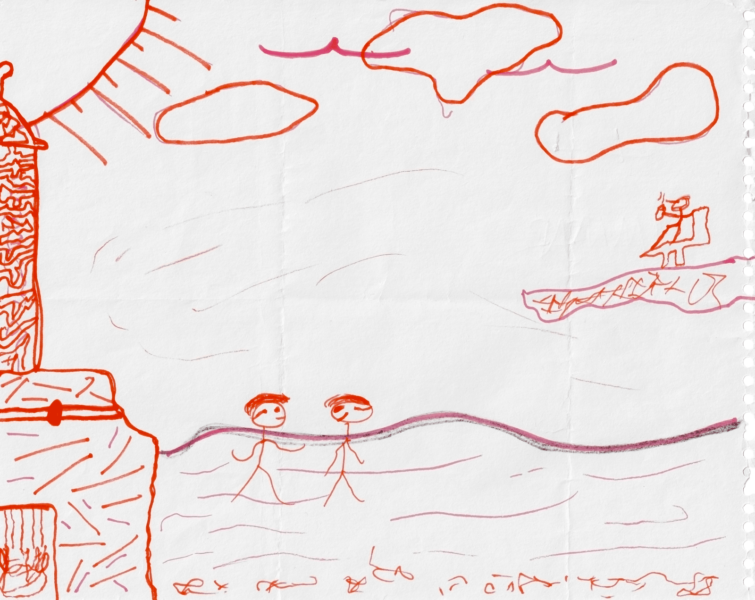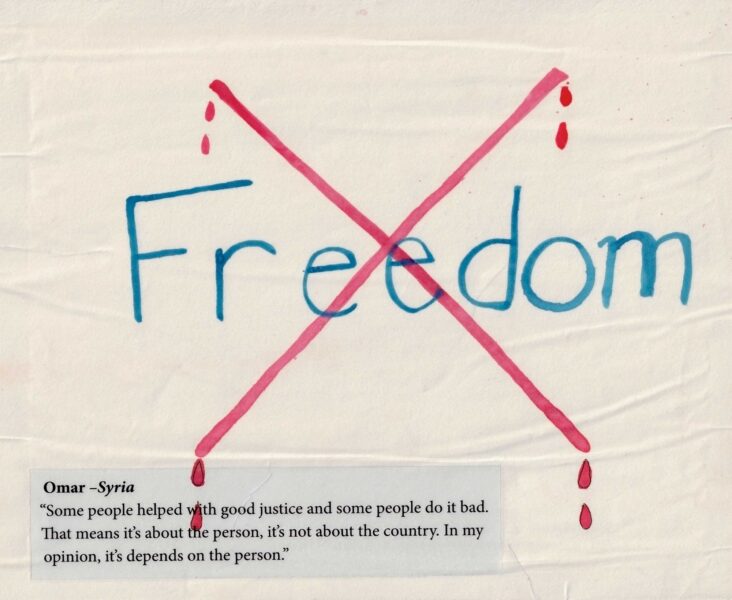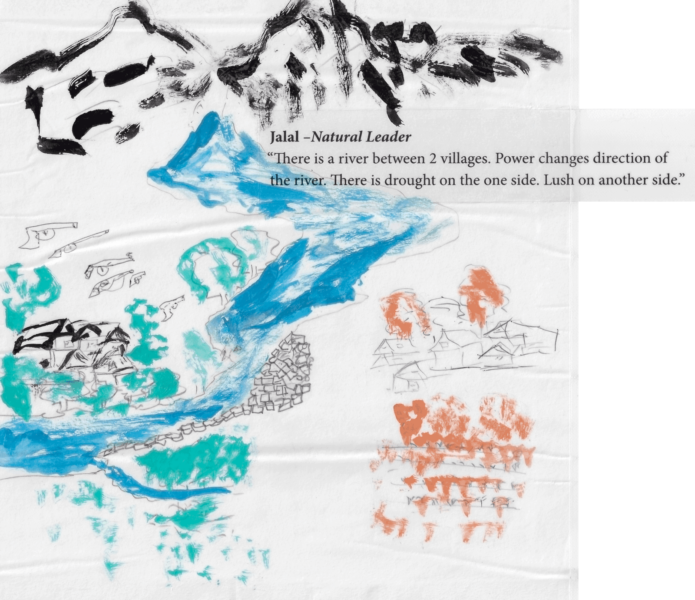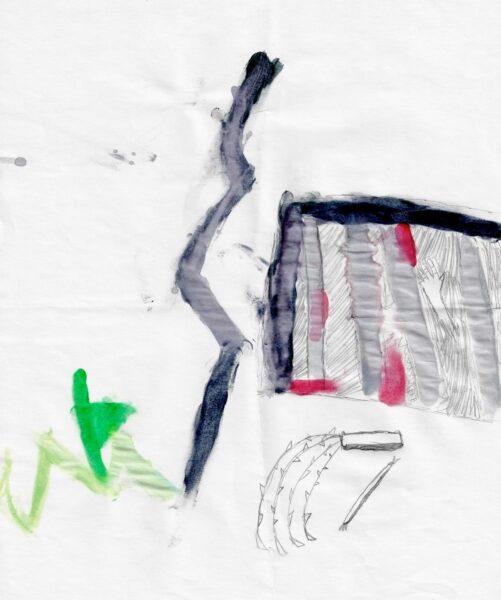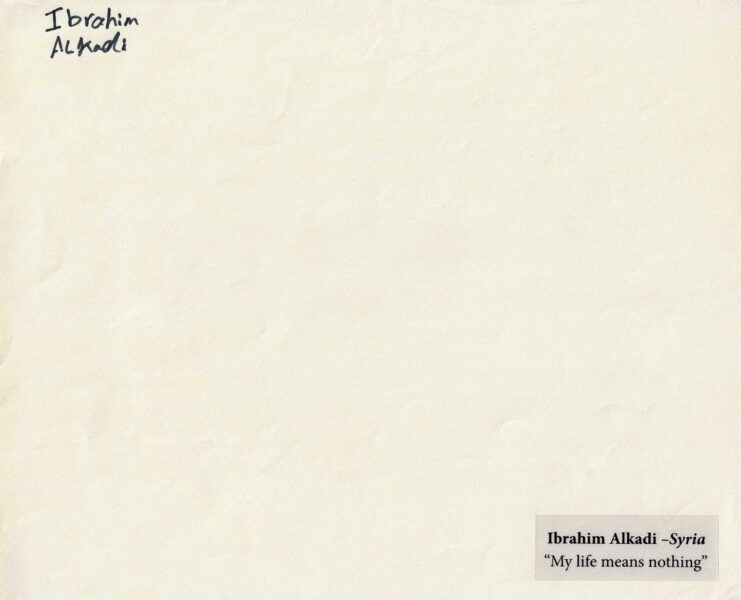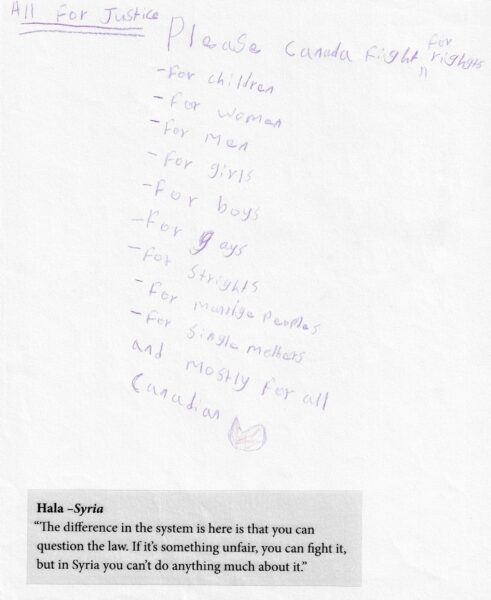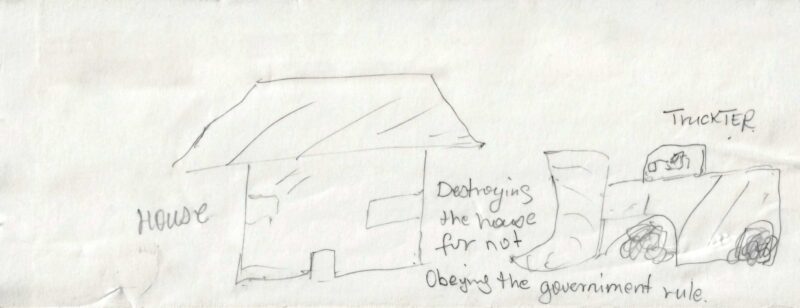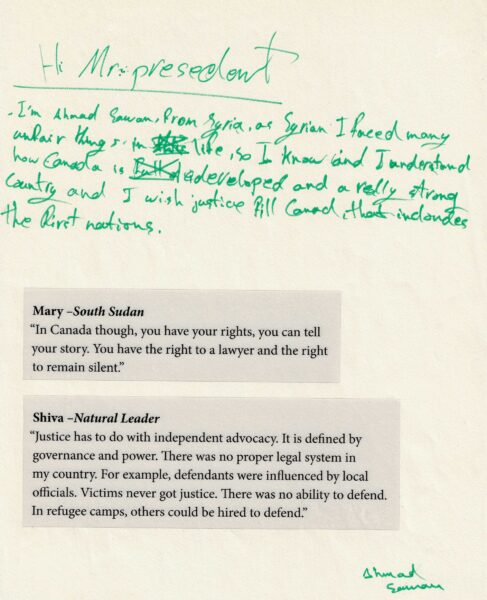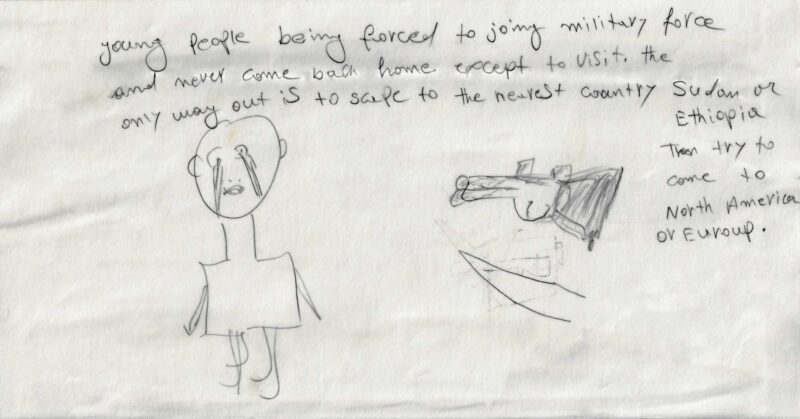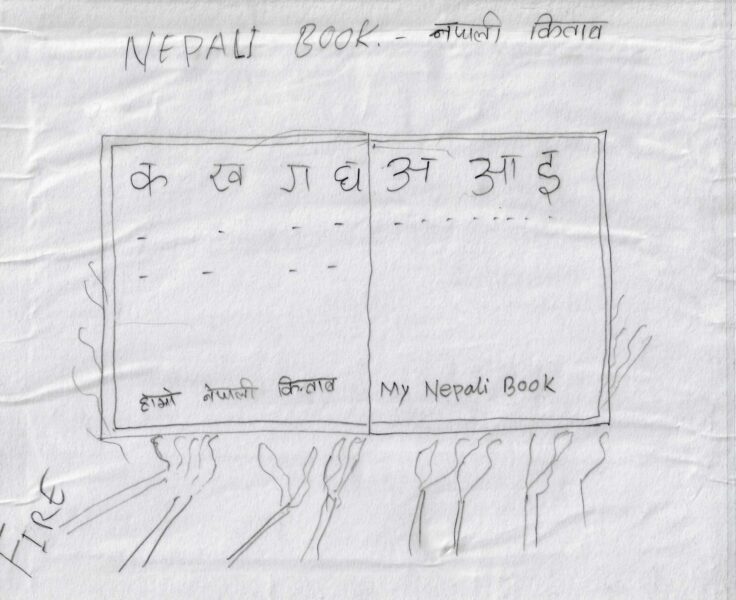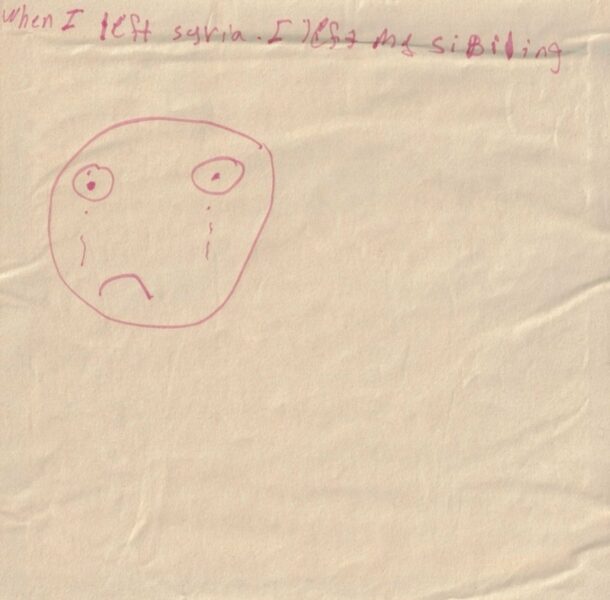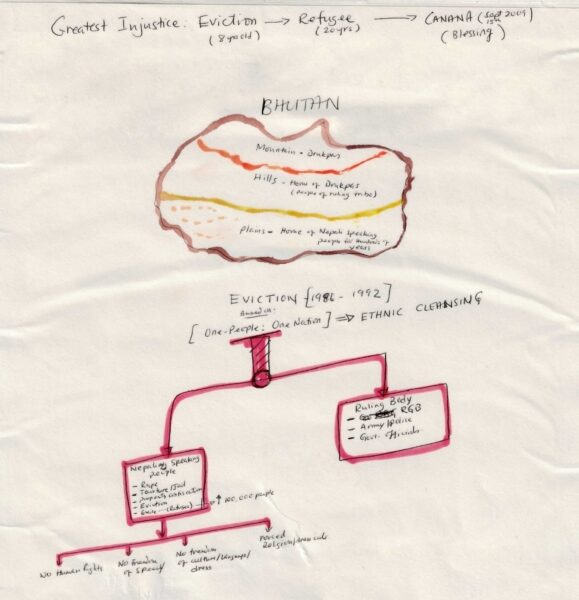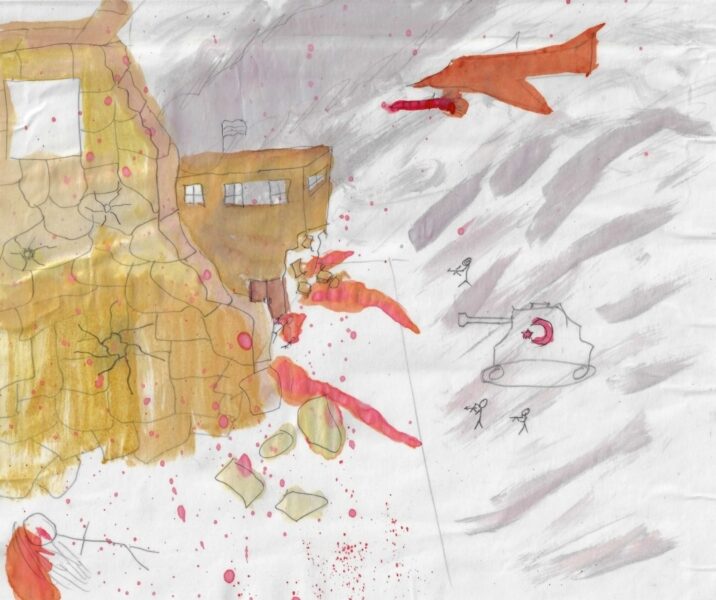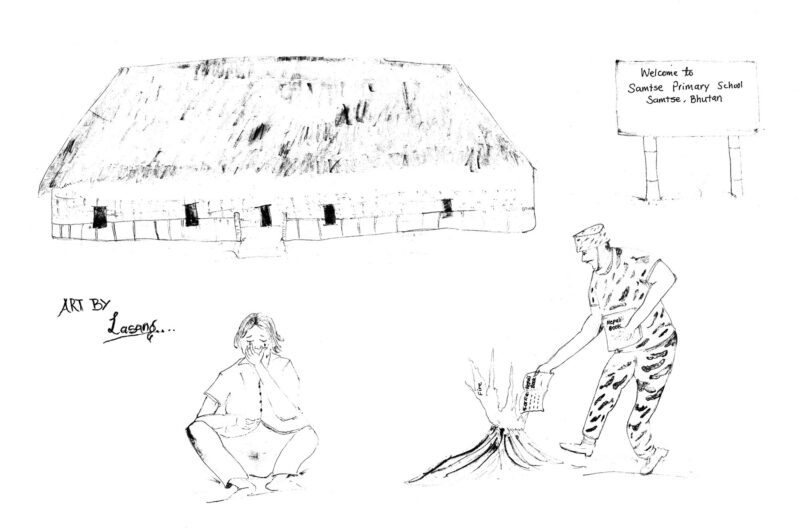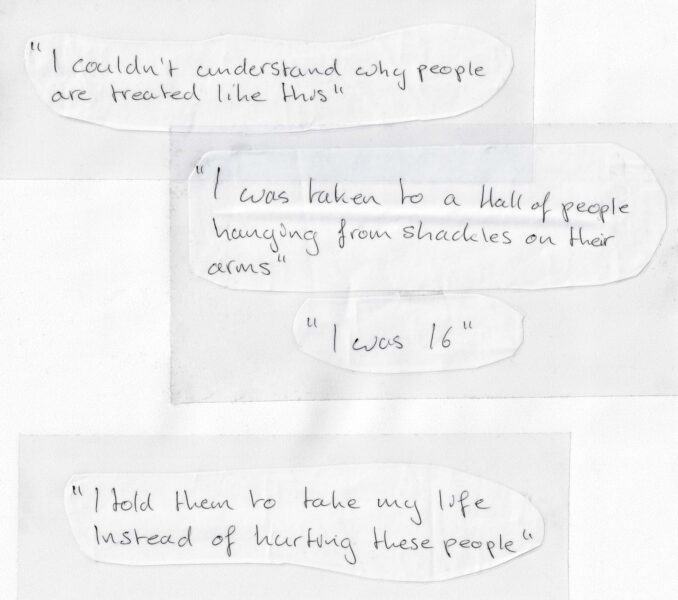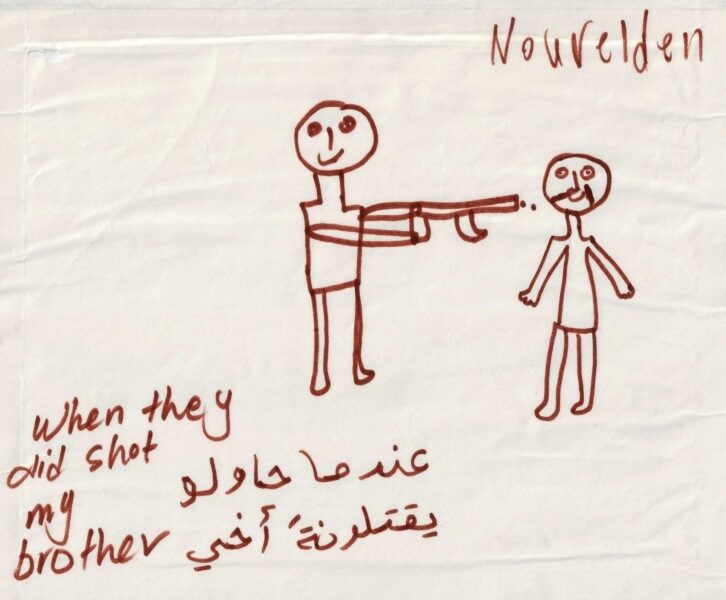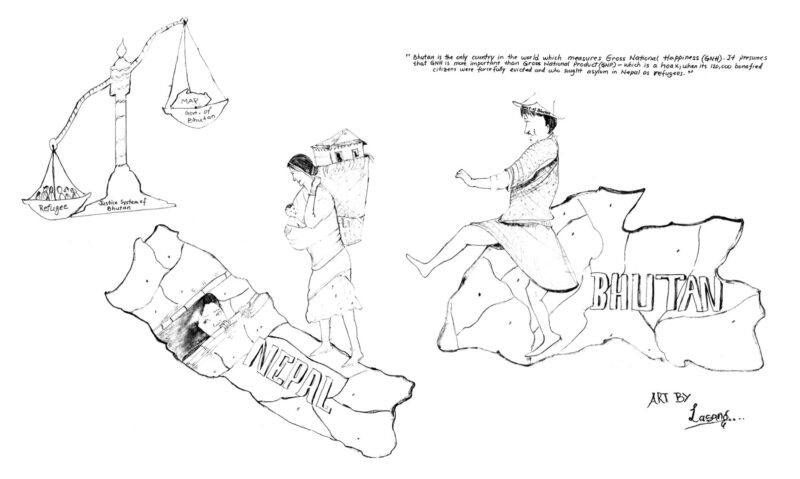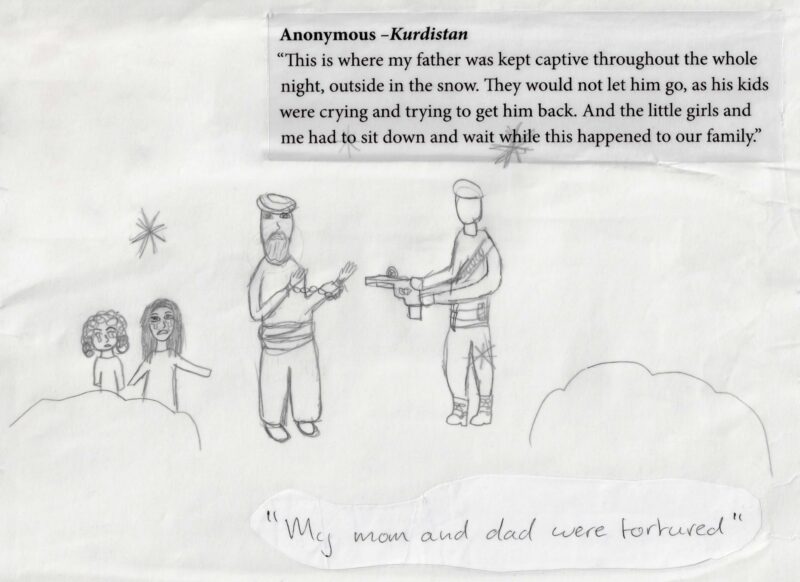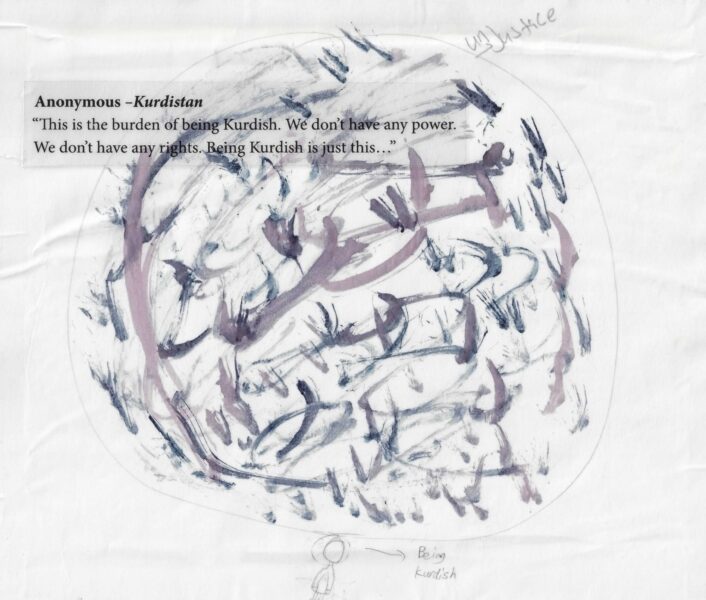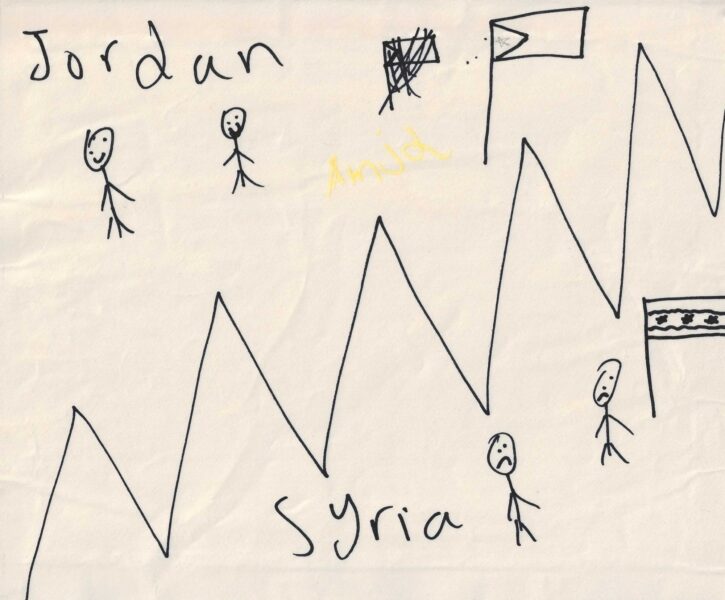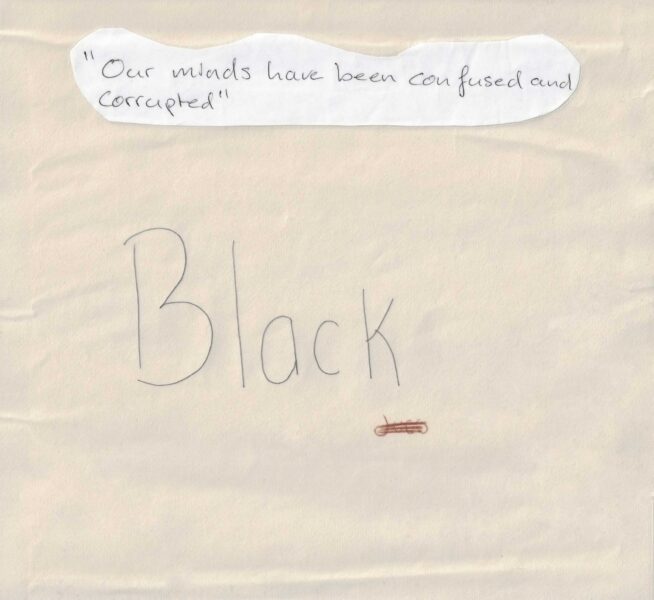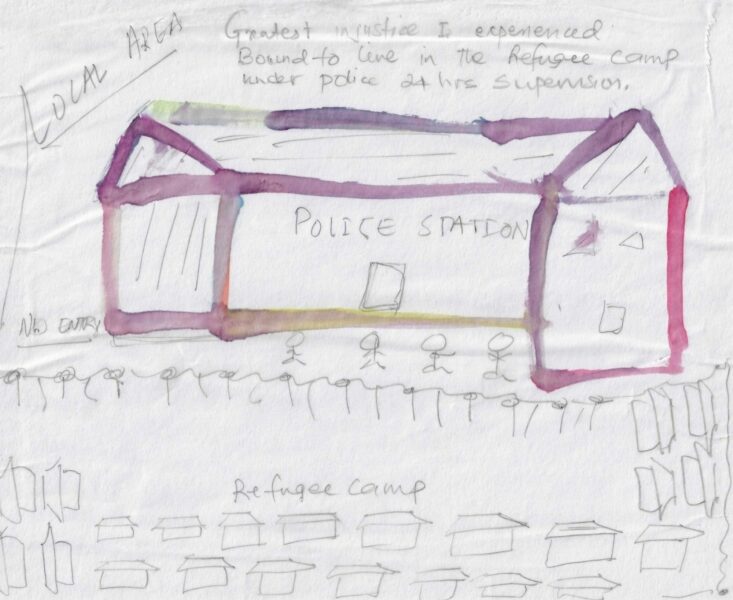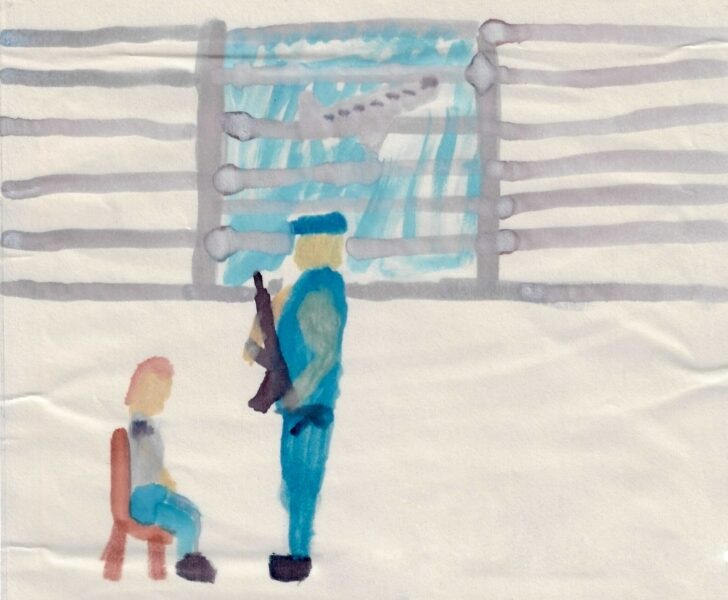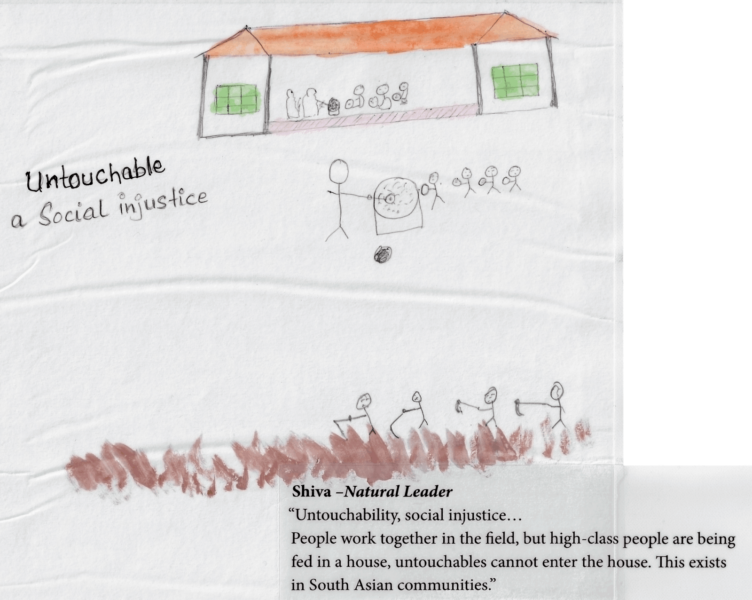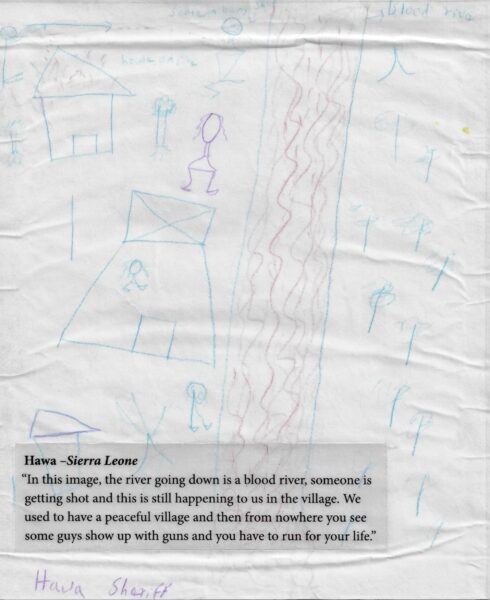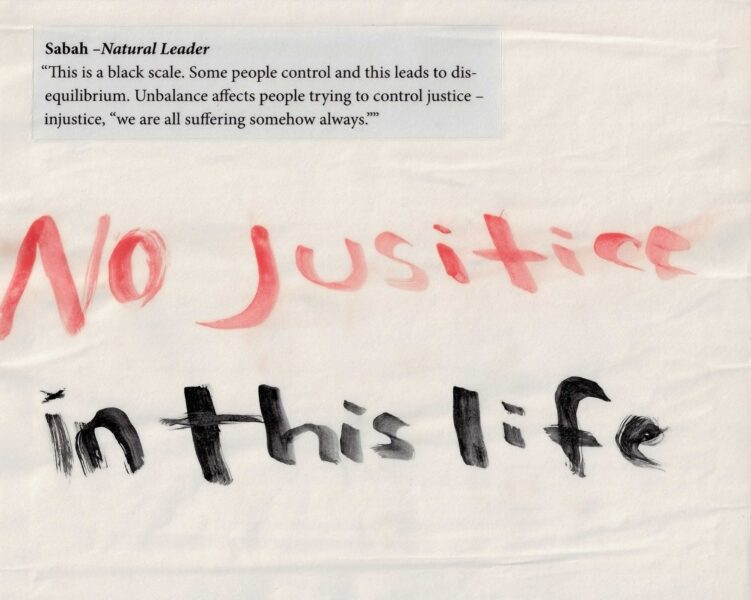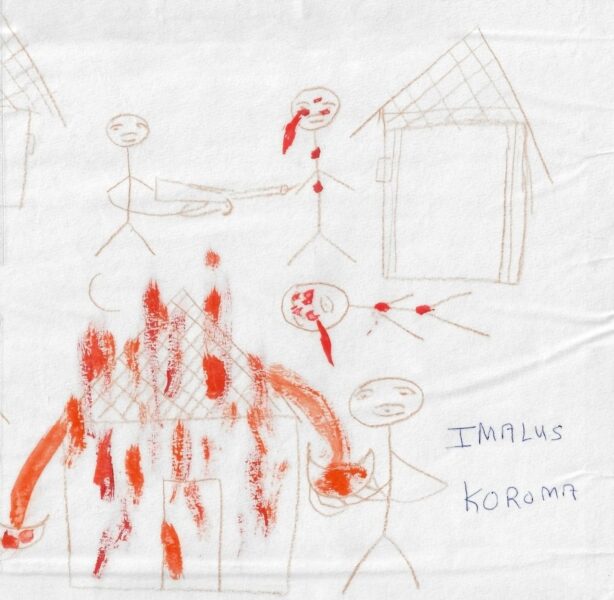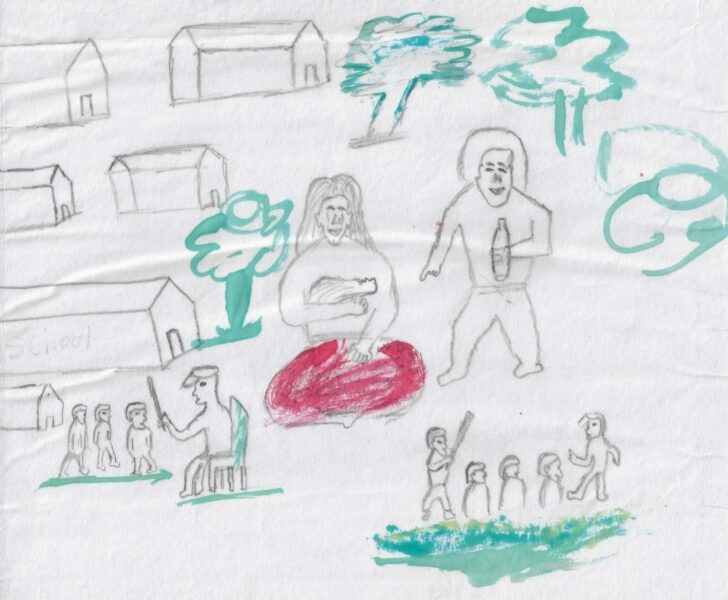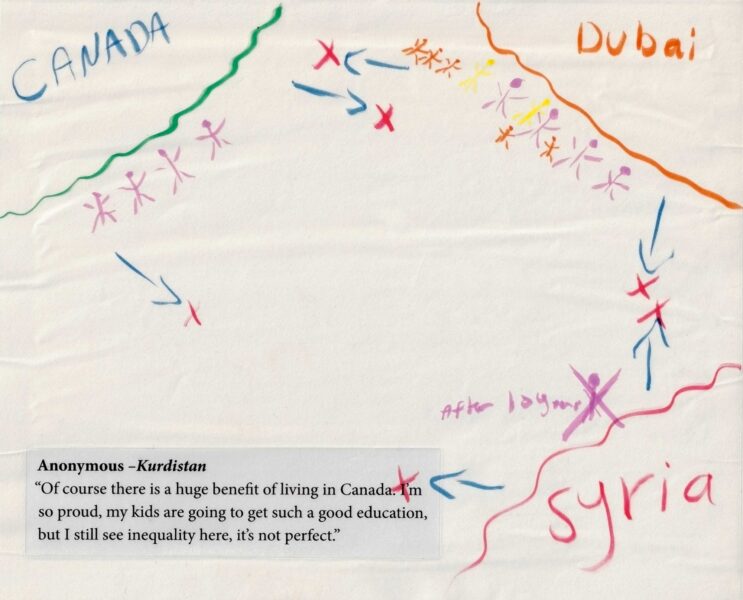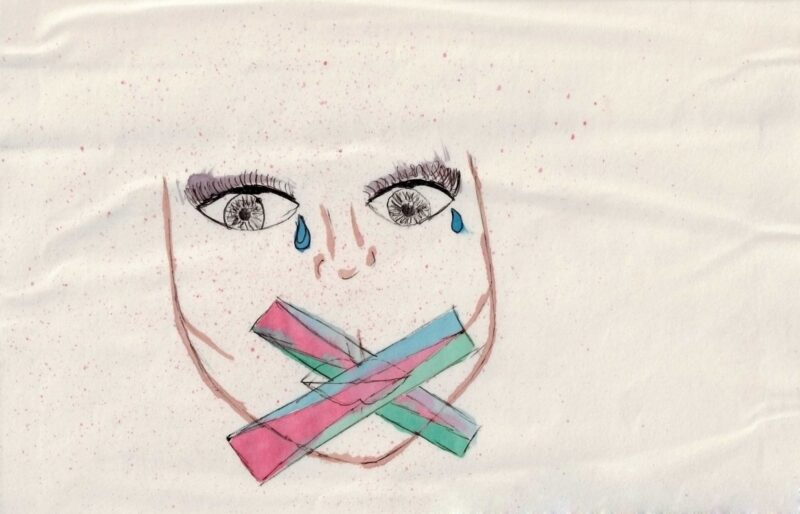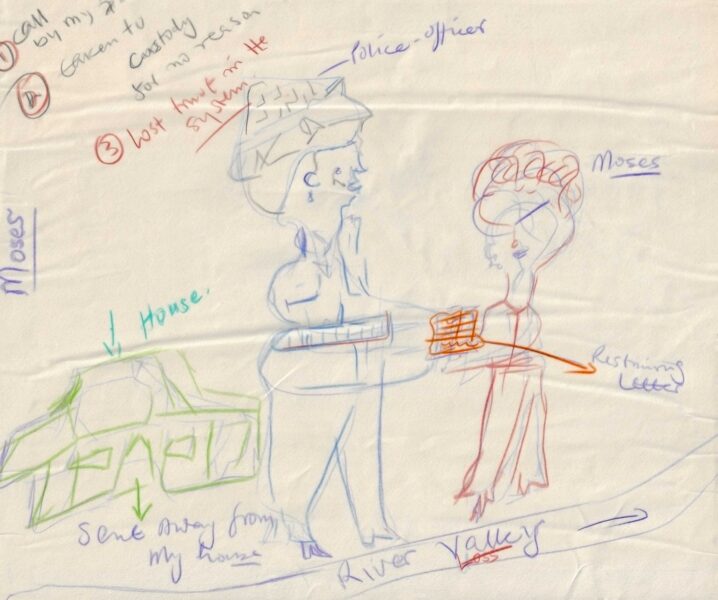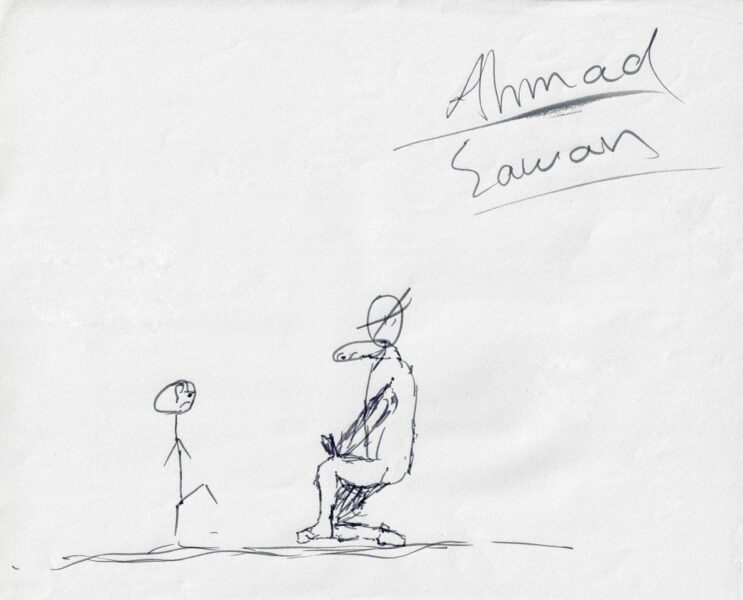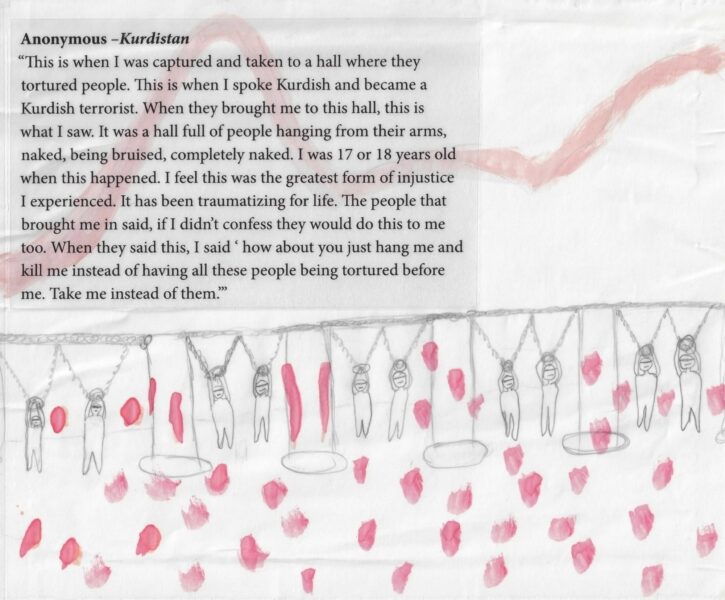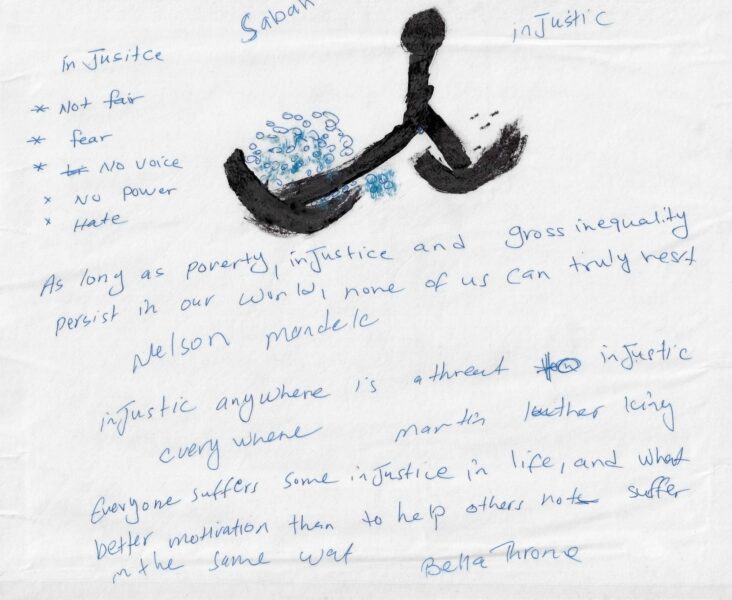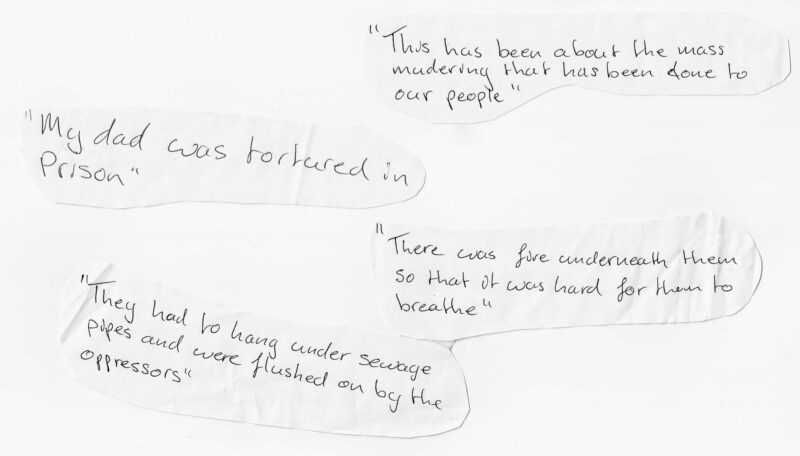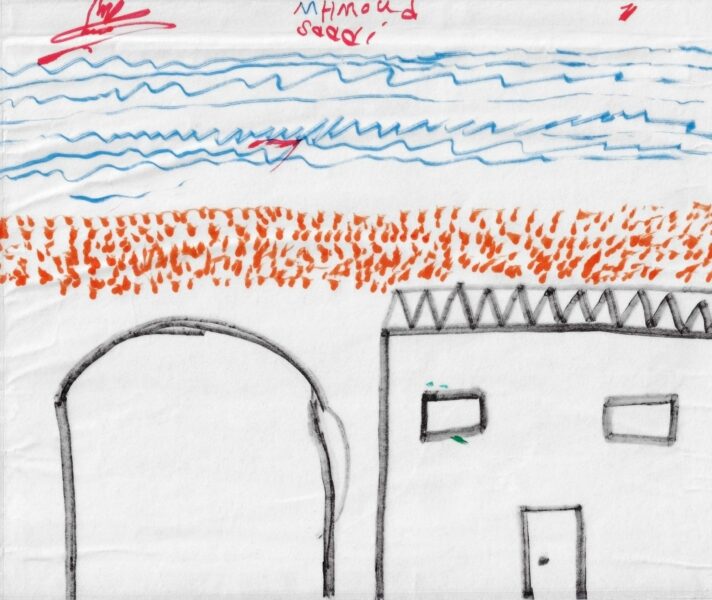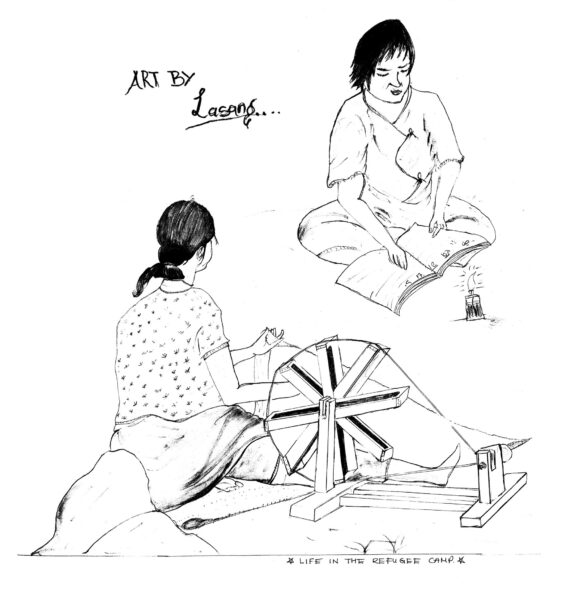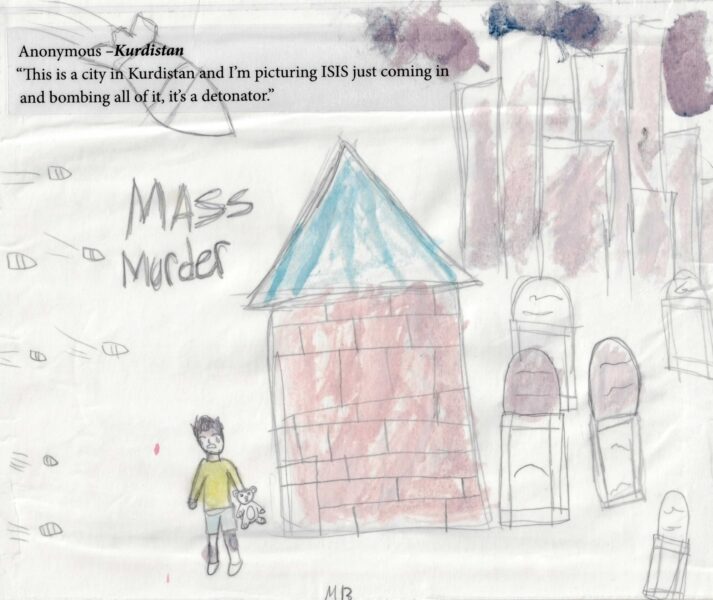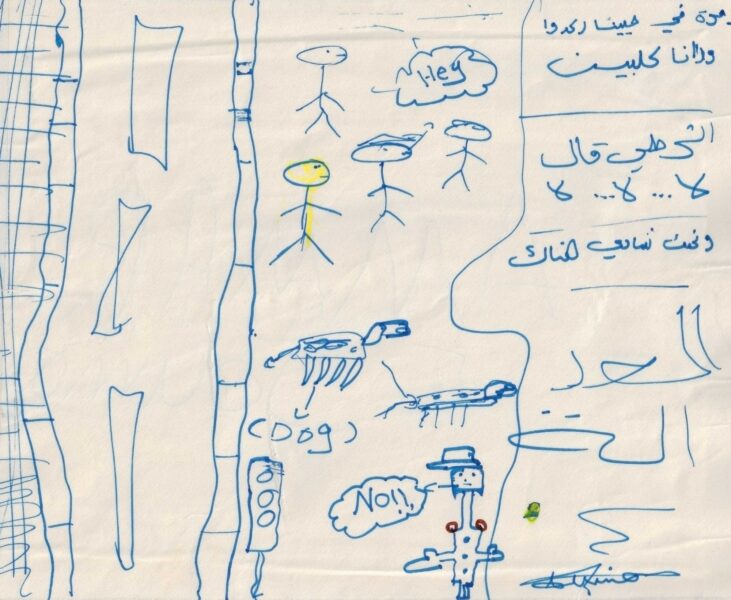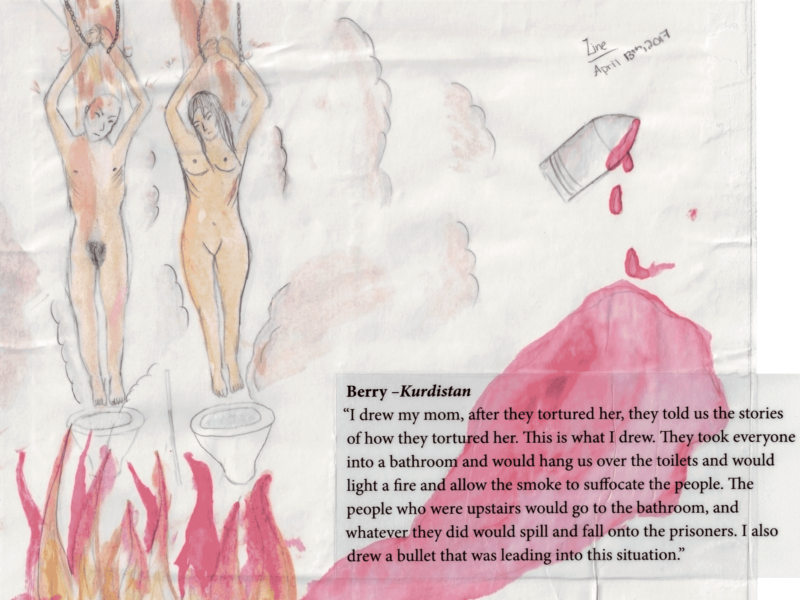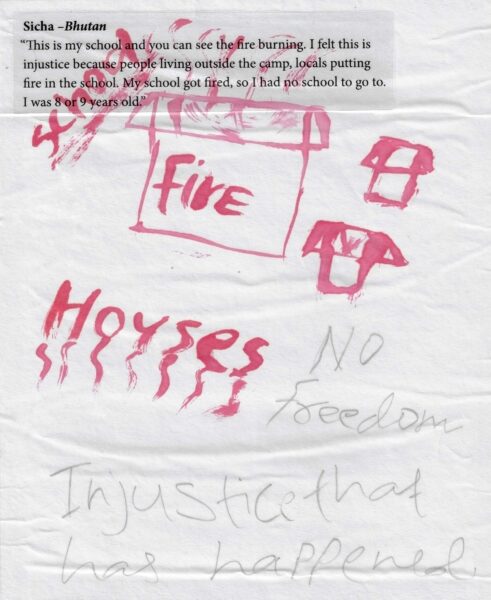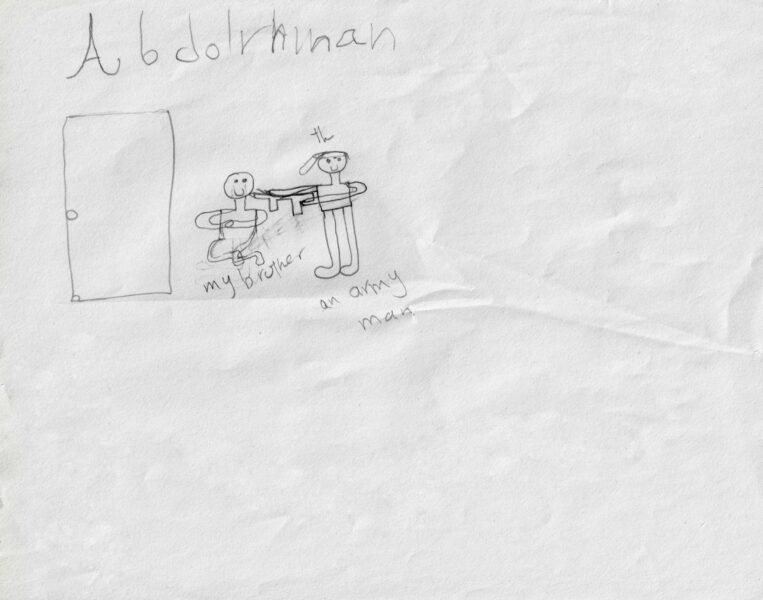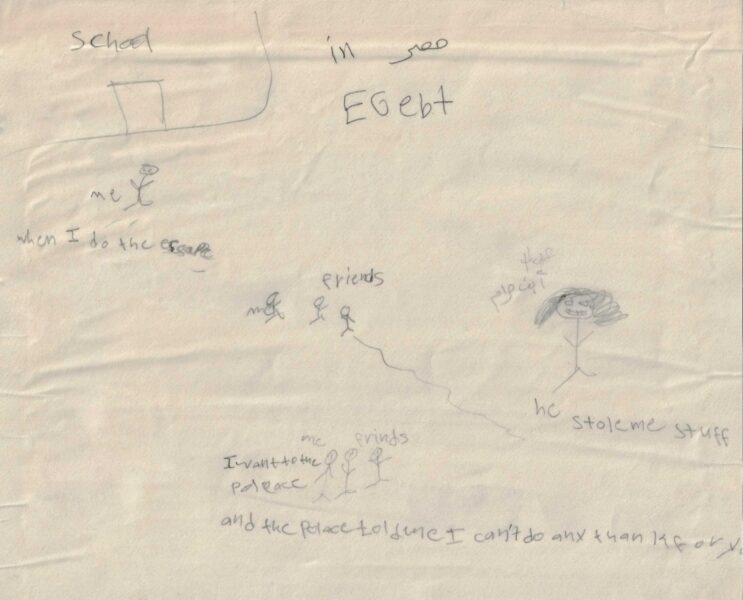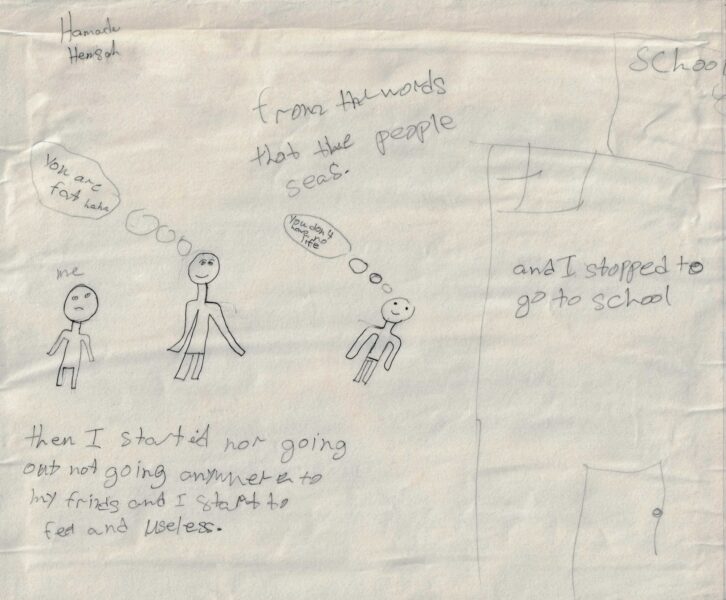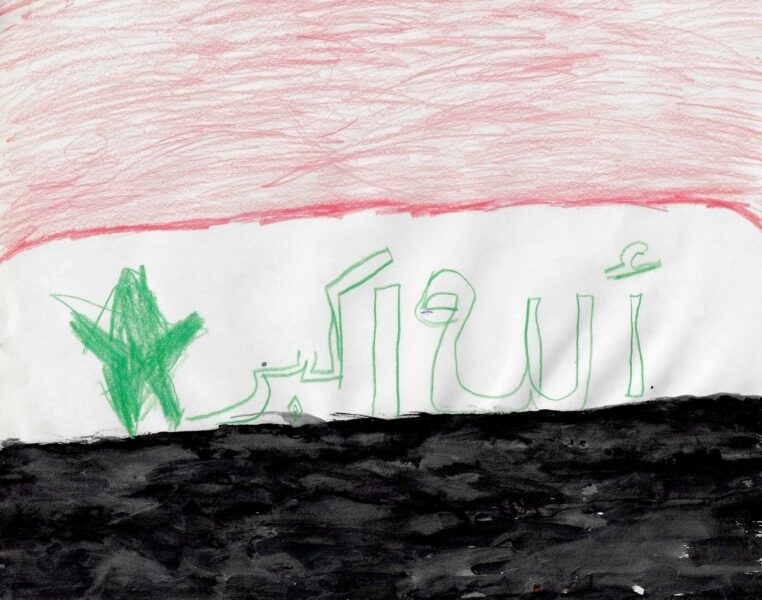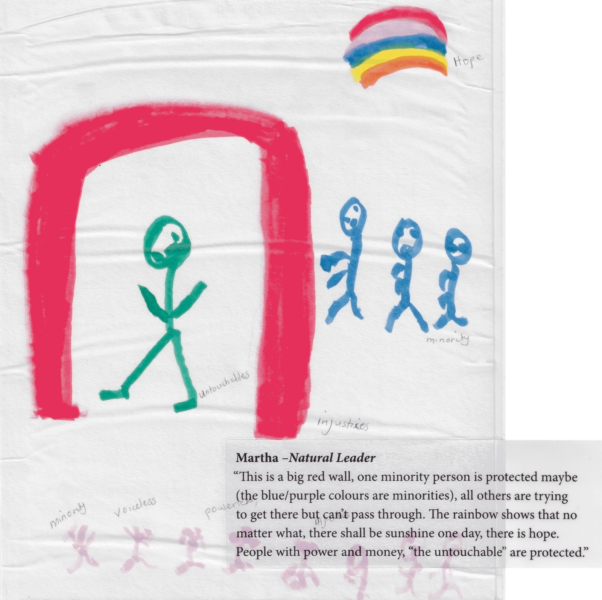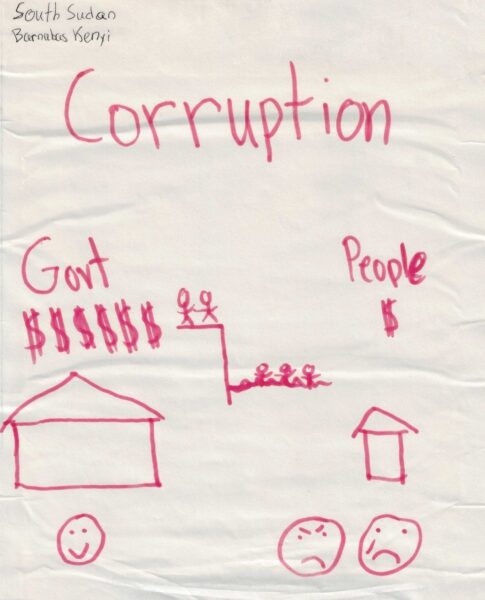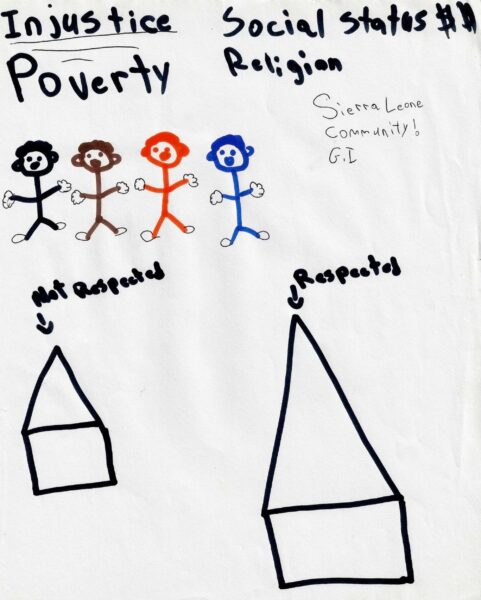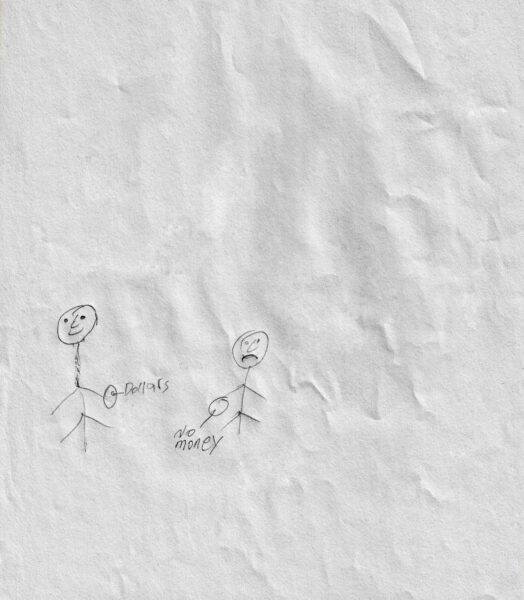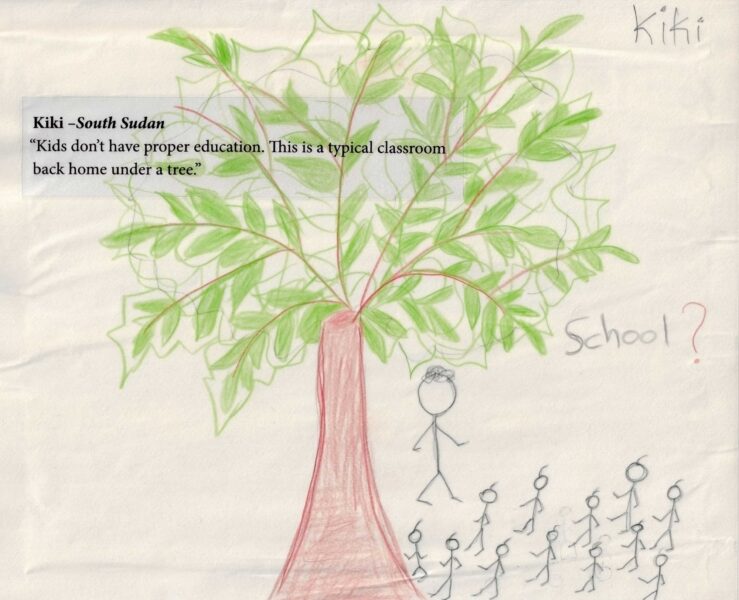Justice
Justice
العدالة
Adala
For treat people fine / fairly
داد پەروەری
न्याय
ፍትሒ
What does it really mean?
There is a balance between rules and disorder, between what seems right and fair and what seems to be unjust. There’s an inner turmoil that may be hidden, and an outer turmoil with vast destructive potential. Here are images of the greatest forms of injustice experienced by many.
Every colour and every figure carries deep meaning.
Here you will find letters scribed by individuals expressing angst, wisdom, and desires for a just life.
Please be aware that this section of the exhibit includes some violent and vulgar imagery expressing injustices experienced by some community members.
Qu’est-ce que cela signifie réellement?
Il existe un équilibre entre les règles et le désordre, entre ce qui semble bon et juste et ce qui semble injuste. Il peut y avoir une consternation interne dissimulée et une consternation externe pouvant être immensément destructrice. Voici des images des plus grandes formes d’injustice vécues par plusieurs personnes.
Chaque couleur et chaque figure a une signification profonde.
Vous trouverez ici des lettres rédigées par des personnes qui expriment de la colère, de la sagesse et le désir d’une vie juste.
Veuillez prendre note que cette section de l’exposition contient des images violentes et vulgaires qui expriment les injustices vécues par certains membres de la communauté.
ماذا يعني حقا؟
هناك توازن بين القواعد والفوضى، بين ما يبدو صحيحًا وعادلاً
ما يبدو غير عادل. هناك اضطراب داخلي قد يكون مخفيا، واضطراب خارجي
مع إمكانات تدميرية واسعة. وإليكم صور لأعظم أشكال الظلم التي يعيشها الكثيرون.
كل لون وكل شخصية تحمل معنى عميقًا.
ستجد هنا رسائل كتبها أفراد تعبر عن القلق والحكمة والرغبات
من أجل حياة عادلة
Madha yaeni haqana?
Kunalik tawajin beina Kawait, beina sekika wa adilan
Wa gaer adil. Iktirab dakil kata ekum mekefan wa iktirab kariji.
Ma imtikaniat tedmir, wasa, wa elikum sura le ajam askal aljulum aleti ayeasku al ketirun.
Kulu lon wa kulu saksia takmil mana ameikan.
Ta sejit kina huna rasail katabaka afurat tu akbir an alikma, al kalika wa arakbat le jemi fakat al haya
Narju al ilim le haja le gisim min al marat ye ta daman baad al amal fi kelima almuktazila wa al muabara wa baat suwar taabir
Suar takzir alzulum aladhi yataerad lah afrad almujtameat nefsika
Watin e really mean?
Difference dae between rules en for obey order, between watin fiba right en fair en watin look lek tin wae nor right. All kind yagba dae happen inside person en all kind yagba dae happin nar dor with boku wahala. Nar yaa tin den dae way dae show you big tin dem of way den nor dea treat pipul fine at all
Ol color en ol tin get dip meaning.
Nar yaa you go see letter dem way dea show how pipul den vex, den get sense, en den dae wish for col hart.
Duya ar go want for mak wunar know say this section yaa nar fearful and bad tin en picture dem dae yaa way go show bad tin dem way done happin to people dem nar we community
دادپەروەری چ دەگەینی ؟
لە نێوان یاسا و بێ یاسایی یەکسانیەک هەیە، لە نیوان راست و هەڵەش.
ئەوەی نا دادپەروەر دەرەکەوێت لەوانەیە واتایەکی شاراوە هابێت و واتایەکی دەرەکی هەبێت
لێرەدا هەندێک وێنەی جوانی داد پەروەری دەبیندرێت.
گشت رەنگ و شێوەکان واتایەکی قول دەردەخات.
لێرەدا هەندێک وشە و ڕەش نوس دەبێنیت کە نەخشیندراوە لە لایەن کەسانێکەوە کە دەیانەوێت هەستەکانیان دەربرن.
تەنها بۆ ژیان
ئەم پێشانگایە هەندێک وێنەی تیدایە کە لەوانەیە گونجاو نەبێت بۆ هەندێک.
यसको वास्तविक अर्थ के हो?
नियम र अव्यवस्थाबीच, के सही तथा निष्पक्ष र के अन्यायपूर्ण देखिन्छको बिचमा सन्तुलन छ । त्यहा एउटा भित्री उथलपुथल छ जुन लुकेको हुन सक्छ, र एउटा बाहिरी उथलपुथल जस्को विशाल विनाशकारी क्षमता हुन सक्छ । यहाँ धेरैले अनुभव गरेको अन्यायको सबैभन्दा ठूलो रूपका चित्रहरू छन् ।
हरेक रंग र हरेक आकृतिले गहिरो अर्थ बोक्छ । यहाँ तपाईले व्यक्तिहरूद्वारा लेखिएका पत्रहरू देख्नु हुनेछ जहाँ आक्रोश, विवेक, र न्यायपूर्ण जीवनको चाहनाहरू व्यक्त गरिएको छ ।
कृपया सावधान रहनुहोस् कि यस प्रदर्शनीको यो भागमा केही हिंसापूर्ण र अश्लील चित्रहरू समावेश छन् जसले समुदायका केही सदस्यहरूले अनुभव गरेका अन्यायहरू व्यक्त गर्दछन् ।
እዚ ንዓኻ እንታይ ማለት እዩ ፧
ኣብ መንጎ ሕግታትን ምምዝባልን ኣብ መንጎ ቕኑዕን ፍትሓውን ዚመስል ነገራትን ሚዛኑ ዝሓለወ እዩ
ዘይፍትሓውን ሚዛኑ ዝሓለወ እዩ ዚመስል። ዝተሓብአ ውሽጣዊ ነውጺ ፡ ከምኡ ከኣ ደጋዊ ህውከትን ኣሎ እዚ ከኣ ሰፊሕን ኣዕናዊ ተኽእሎ ዘለዎ። ኣዚ ከኣ ብዙሓት ኣብ ህይወቶም ዝወረደ ዘይፍትሓዊ ተሞክሮ ታት ዘርኢ ስእልታት ኣሎ ።
ኩሉ ሕብርን ነፍሲ ወከፍ ኣሃዝን ዓሚቝ ትርጉም ዝሓዘ እዩ።
ኣብዚ ብውልቀሰባት ጭንቀትን ጥበብን ድሌታትን ዝገልጹ ደብዳቤታት ክትረክብ ኢኻ።
ንፍትሓዊ ህይወት።
እዚ ክፋሊ ምርኢት እዚ ገለ ኣባላት ማሕበረሰብ ዘጋጠሞም በደላት ዝገልጽ ፣ ገለ ዓመጽን ጽዩፍን ምስልታት ዘጠቓልል ምዃኑ ክትፈልጡ ንላቦ።
Justice
Justice
العدالة
Adala
Treat People Fine
داد پەروەری
न्याय
ፍትሒ
- What does it feel like when life is unfair?
- How might you practice honoring Indigenous Peoples of the land you are on?
- What emotions have you felt as you’ve explored the way people around the world have experienced injustice? What is one thing you might want to do differently as a result?
- Que ressentez-vous quand la vie est injuste?
- Comment pourriez-vous rendre hommage aux peuples autochtones de la terre où vous habitez?
- Quelles émotions avez-vous ressenties en explorant la manière dont des peuples du monde entier ont subi de l’injustice? Nommez une chose que vous pourriez faire différemment à la lumière de cela.
- ما هو الشعور عندما تكون الحياة غير عادلة؟
- كيف يمكنك ممارسة تكريم السكان الأصليين للأرض التي تتواجد عليها؟
- ما هي المشاعر التي شعرت بها عندما استكشفت الطريقة التي يعاني بها الناس في جميع أنحاء العالم من الظلم؟ ما هو الشيء الوحيد الذي قد ترغب في القيام به بشكل مختلف نتيجة لذلك؟
- Ma hu alshueur eindama takun al-Hayat ghayr eadilatun?
- Kayf yumkinuk mumurasat takrim alsukaan al’ asiliyin li lard alati tatawajat ealayha?
- Ma hi almashaer alati shaearat biha athna aistakshafik litarqat alati yueani biha alnaas fi jamied anha aleam min alzulmi? Ma hu alshay alwahid aladhi qad tarqhab fi al qiam bih bishaki muktailif natijatan lidhahiya?
- How e feel wae life nor dae treat you fine?
- Watin nar dea tin dem wae you kin do for honar de pipul dem way get dis land wusai we dae?
- Which kind way you kin feel wae you don see how other pipul dem around dea world don experience wae den kin treat dem bad? Watin nar wan tin wae you kin want for do differently as a result?
- هەست کردن بە نادادپەروەری چیە ؟
- چۆن ڕێز لە خەڵکی ڕەسەنی ئەو خاکە دەگری کە لە سەری دەژی ؟
- هەستت بە چ دەکەی کاتێ دەزانی خەڵکانێکی زۆر لە دنیا لە سایەی زوڵم و زۆرداری دەژین ؟
دەتەوێ چ شتێک بکەی گەر لەدەستت بێ بە هۆکاری ئەو زوڵم و زۆردایە ؟
- जब जीवन अन्यायपूर्ण हुन्छ तब कस्तो महसुस हुन्छ?
- तपाईं आफू बसेको भूमिका आदिवासी जनजातिहरूलाई कसरी सम्मान गर्न अभ्यास गर्नुहुन्छ?
- संसारभरिका मानिसहरूले अन्याय अनुभव गरेको तरिका अन्वेषण गर्दा तपाईंले कस्तो भावनाहरू महसुस गर्नुभएको छ? फलत: तपाईले फरक तरिकाले गर्न चाहनुहुने एउटा कुरा के हो?
- ህይወት ዘይፍትሓዊት ክትከውን እንከላ ከመይ ይስመካ ፧
- ከመይ ጌርካ ንደቀባት ናይ እዛ ምድሪ እዚኣ ምኽባር ክትለማመድ ትኽእል፧
- ኣብ መላእ ዓለም ዝርከቡ ሰባት በደል ከጋጠሞም ኣገባብ ክትድህስስ እዋን ከለኻ እንታይ ስምዒታት ተሰሚዑካ? ዝተፈለየ ውጽኢቱ ክትርኢ ብሸነኽካ እታይ ኣስተዋጽኦ ክትገብር ትኽእል፧
